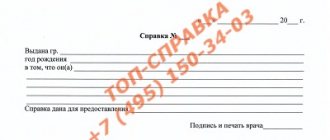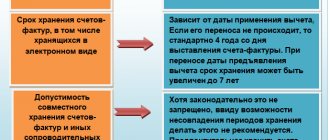Smoking during working hours is the cause of many disputes between employees and superiors. It is possible to resolve this dispute only by understanding the basic concepts and definitions related to this topic and studying the regulatory documents governing the relationship of the parties in this issue.
Smoking is a fairly common habit, largely due to the fact that nicotine addiction is quite difficult to overcome, and, unfortunately, many are not able to cope with it and give up daily “smoke breaks” both at home and at work.
But in addition to harming one’s own health and the health of those around him, this habit, as some employers believe, also has a detrimental effect on the work process, since minutes spent on a cigarette unnoticed by the employee can add up to hours missed from the daily work routine. Therefore, there are certain rules for smoking during working hours.
What does the Labor Code say about smoking in the workplace? Regulations
Is it possible to smoke in the workplace?
The Labor Code (LC) is one of the main documents regulating the relationship between an employer and an employee.
First, let's get acquainted with the basic terms necessary for further discussion of this issue.
A workplace is a place where an employee must arrive to perform his work duties. Also, during the work process, the employee must comply with all the procedures and rules prescribed by this organization, and must understand that failure to comply with them may entail disciplinary liability provided for by the charter of the enterprise and expressed in the form of a reprimand, reprimand or even dismissal.
Disciplinary liability is a legal liability. It is expressed in the application of disciplinary sanctions that an institution, enterprise or organization can apply to an employee due to his committing a disciplinary offense, and in other words, for failure to comply with the internal rules of a given enterprise or organization.
Working time and rest time - determine when an employee must perform his work, and when he can rest and devote time to his personal affairs without compromising the production process.
As for the information about smoking breaks in the Labor Code itself, you need to know that it does not contain any specific information in this regard allowing or prohibiting smoking during working hours. That is, the law does not officially provide for the organization of a smoking break during the work process.
Specially designated areas are being created.
In this regard, the employer may prohibit smoking at work by a special act, and at the same time he will not bear any responsibility for failure to provide this break to the employee.
Legal advice. Is it legal to ban smoking at work?
Anatoly Pavlovich SHEVCHENKO, lawyer of the Chunsky branch of the Irkutsk Regional Bar Association (IOKA), answers readers’ questions.
I work in a government agency and during the day I leave the building several times for a smoke break. Recently, my boss began to complain to me about my absence from work due to smoking breaks. Tell me, don’t I have the right to manage my rest time at my own discretion? Can I be banned from smoking at work?
Undoubtedly, smoking is a very bad habit, widespread in our time, because people smoke both at work and outside of work. The Law “On Restricting Tobacco Smoking” defines tobacco smoking as inhaling smoke from smoldering tobacco products, which include filtered and non-filtered cigarettes, cigarillos, cigarettes, smoking and pipe tobacco, shag, and so on. The above law prohibits smoking in urban, suburban, and air transport, on the territories and premises of educational institutions, government bodies, indoor sports facilities, cultural and health care institutions, as well as in workplaces, with the exception of special places designated for this.
You can receive Taishet news by email
The Labor Code (Labor Code of the Russian Federation) determines that a workplace is a place where an employee should be, where he should arrive in connection with his work, and which is directly or indirectly controlled by the employer (Article 209 of the Labor Code of the Russian Federation). The time for smoking can be determined by the manager in the form of special breaks. The employee can also use time during any other breaks for rest. Working time (Article 91 of the Labor Code of the Russian Federation) refers to the time during which an employee must perform his work duties, as well as other periods that, according to the law, relate to working time. Rest time is the time when an employee is free from performing duties and can use it at his own discretion (breaks during the working day, daily rest, weekends, non-working and holidays, vacations (Article 107 of the Labor Code of the Russian Federation). But please note that Trudov The Code does not establish special breaks for smoking.
On June 1, 2013, Federal Law No. 15-FZ “On protecting the health of citizens from the effects of environmental tobacco smoke and the consequences of tobacco consumption” came into force, prohibiting smoking in workplaces and work areas. However, an employee who violates the provisions of this law cannot be fired. At the same time, an employee can be fired for failure to comply with the employer’s local act communicated to employees, that is, internal labor regulations and/or gross violation of fire safety rules. To do this, the employer’s local act must stipulate a ban on smoking outside designated special smoking areas (clause 3 of part 1 of Article 10 of the law, clause 14 of the fire regulations in the Russian Federation, approved by Decree of the Government of the Russian Federation of April 25, 2012 N390) and outside the hours established by the employer for smoke breaks (Article 107 of the Labor Code of the Russian Federation).
An employee who violates such provisions is subject to disciplinary action in accordance with the rules of Article 193 of the Labor Code of the Russian Federation. If an employee has a disciplinary sanction, he can be deprived of his bonus (in whole or in part) for failure to comply with one of the bonus conditions established by the company’s regulations on remuneration and bonuses, or he can be dismissed under Part 5 of Article 81 of the Labor Code of the Russian Federation. Also know that if you take another smoke break at your workplace at an inappropriate time, your manager can easily accuse you of being absent from work. For this you can easily get a reprimand or reprimand.
Of course, the boss can officially allow smokers to smoke in specially designated areas. But for the employer, this option is the least acceptable, since allowing smoking means that every hour employees will use this opportunity, which will lead to a reduction in working time by one and a half to two hours. You won’t deny that in order to smoke, you will have to get dressed, leave the building, go to the smoking room, smoke, talk about life with your smoking colleagues and return to your workplace. Now the working day has become shorter by 15-20 minutes, and such smoking breaks are accumulated from four to six, or even more, per day.
So look at yourself from the perspective of your superiors, and also through the eyes of non-smoking colleagues who work during your smoking breaks. We should not forget about one more side of this issue. Namely, about communication between employees and clients, because representatives of many professions are focused specifically on working with visitors. And you must admit that it is quite unpleasant to communicate with a consultant or administrator who reeks of tobacco, not to mention hairdressers, massage therapists, cosmetologists, doctors or nurses. In a word, those who, while working, are in close proximity to the client’s face.
Of course, in our time, smokers are oppressed: terrible photographs are printed on cigarette packs, tobacco products are hidden behind curtains in stores, a healthy lifestyle is promoted, but smokers actively resist. At the same time, non-smokers present their arguments, and smokers defend their rights. In addition, heads of institutions introduce fines for smoking during working hours and give gifts to those who do not smoke. But if a person smokes and does not want to give up this addiction, no reasonable arguments will convince him, he will still smoke.
How should management deal with employees who cannot give up this bad habit, and at the same time not limit the rights of non-smoking employees? The time for smoking can be determined by the manager in the form of special breaks, which will be enshrined in local regulations at the enterprise. The employee can also use time during any other breaks for rest.
Owners of this bad habit, by law, do not have the right to demand from the employer either permission to smoke in the workplace, or allotment of special breaks for them, but you can politely talk to your boss about establishing such breaks and setting up a smoking room in the room. And if the boss himself is a smoker, then perhaps your proposal will find understanding. If you don’t agree, all you have to do is look for a secluded place on the street, or even better, quit smoking completely! Research shows that workers who smoke take three more sick days each year than non-smokers. Scientists have found that smokers get sick more often and for longer, which is why the fight against smoking and carrying out appropriate work with personnel can be cost-effective for both the employer and for you, dear smokers.
Smoking schedule at work
You can smoke at lunchtime.
As mentioned above, the Labor Code does not provide for special breaks for smoking, so everything here directly depends on the employer and the policy of the enterprise.
This means that an employee cannot demand permission from his superiors to smoke, much less allocate special breaks for this.
Therefore, he can only politely ask his superiors to meet him halfway in this matter, or, if there is no response from management, look for secluded places on the street during his legal lunch break, or even better, give up this habit completely!
If smoking is not prohibited by an internal act of the enterprise, then employees can use part of their lunch break for these purposes, or breaks can be provided by the manager when organizing the work of the enterprise.
In any case, this must be a standardized time approved in the company’s staffing table.
General provisions of the law
The smoking ban law includes 25 articles regulating the use of tobacco in public places, the rights and responsibilities of citizens, and the powers of federal and municipal authorities.
Here you will find a list of areas and premises where smoking is strictly prohibited. Restrictive measures have been determined for sellers of nicotine-containing products, as well as liability for violations of the Federal Law on the prohibition of smoking. Together with the legislative document of the Russian Federation No. -FZ, called among the common people the “law on smoking”, changes were made to the administrative code establishing the extent of responsibility for violators.
The document under consideration is intended to strengthen the nationwide fight against smokers in public places, as well as entrances, on apartment balconies, and other publicly accessible premises.
Remember, smoking in public places is not completely prohibited. The legislator simply establishes a list of permitted places for smoking, as well as those where there are restrictions.
Smoking areas
Of course, smoking should not be encouraged, but if the majority of employees in a company have this bad habit and are not ready to give it up, then in order to protect non-smoking employees and in accordance with the law, the employer must take care of a special place where during the time provided for rest it would be officially Smoking is allowed.
This place must comply with all fire and sanitary safety standards. If it is located indoors, then an exhaust hood must be present; if this is not possible, then the smoking room must be located outside.
In addition, any organization, regardless of its type of activity, is required to develop instructions on fire safety measures for its company with mandatory training for all employees.
In addition to meeting these standards, smoking areas must also not be on the list of prohibited smoking areas in accordance with paragraph 2 of Decree No. 23/21.
Features of the ban on tobacco smoke by law
Important. Article 12 of Federal Law No. 15 of February 23, 2013 prohibits smoking in workplaces and work areas organized on premises.
Let us reveal the basic concepts presented in this norm. The workplace, in accordance with Article 209 of the Labor Code of the Russian Federation, is understood as the location of the employee controlled by the employer, where he performs his job duties.
This can be one or several sections of the production premises, and if they are located throughout the premises, then the entire area of the premises is considered a workplace. This is where the employee spends most of his working time. When working at a computer, the workplace should occupy at least 4.5 square meters. m.
The work area is a space up to 2 m high above the floor or platform. It provides places for not only permanent but also temporary stay of workers.
Thus, in areas where employees directly perform their job duties, smoking is strictly prohibited. In other spaces, the employer may allow smoking, but must ensure that other employees have the right to protection from tobacco smoke.
Organization of zones in the workplace
When allowing smoking at an enterprise, the employer is obliged to equip specially designated areas in isolated rooms or in the open air. For fire safety reasons, they cannot be created in a toilet or small enclosed spaces (warehouses, storage rooms, etc.).
Smoking areas must be equipped with:
- fire extinguisher;
- sign “Smoking area”;
- artificial lighting;
- at least two ashtrays and one large trash can;
- stands with information about the effects of cigarettes on the human body.
Smoking rooms must be isolated from other industrial or office premises and equipped with exhaust hoods to eliminate unpleasant odors.
Reference. Smoking areas must be kept in order. Usually, a duty plan is drawn up between smoking employees.
In which facilities is smoking prohibited?
At the same time, the law establishes a list of enterprises where even the employer cannot allow smoking. These include:
- educational, cultural and leisure, youth, physical education and sports facilities;
- medical, rehabilitation, health resort and social institutions;
- bodies of state power and local self-government;
- all types of passenger transport, including long-distance transport, and transport infrastructure facilities intended for the transportation of passengers;
- hotels, hostels, dormitories and other enterprises providing temporary accommodation or temporary accommodation services;
- trading enterprises;
- household enterprises;
- cafes, restaurants and other catering establishments;
- gas stations.
What threatens violators?
The most common liability for violators of the latest smoking law is administrative. Here, a system of administrative fines for various types of violations is legally defined. So, if you violate the norms of Federal Law No., you will have to pay a fine, the amount of which is:
- up to 1,500 rubles for consuming nicotine in a public place (territory or premises), at the entrance of an apartment building, or on a staircase landing;
- up to 3,000 rubles will be charged while consuming tobacco smoke directly or near the playground;
- up to 2,000 rubles will be charged to the treasury when you are “caught” teaching children or teenagers to use nicotine;
- up to 3,000 rubles, it is expected when children are taught to breathe smoke by their parents, relatives, and guardians;
- up to 90,000 rubles will be expected as a fine for company managers who ignore the restrictions regarding the organization of special smoking rooms, or who independently violate them.
Read also: Law on alcohol advertising
Law banning smoking in public places
In Russia, in 2013, Federal Law No. 15 “On protecting the health of citizens from exposure to tobacco smoke” was adopted. This document provided a list of places allowed and prohibited for smokers, and also regulated the procedure for advertising tobacco products and cigarettes in order to minimize its impact on the health of citizens.
The main direction of this act is to protect the health of Russians and reduce the harmful effects of bad habits on the everyday life of others.
In 2020, the law has undergone virtually no changes, both in the list of places that are prohibited and in relation to the amount of fines applied to violators - smokers.
So, let's see where you can legally smoke and where you can't.








